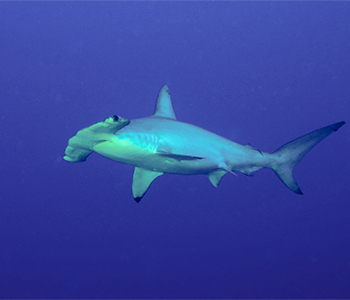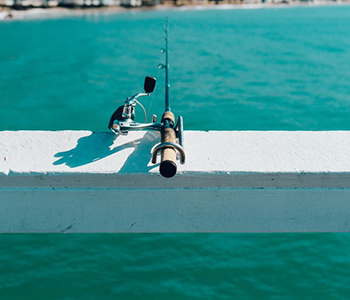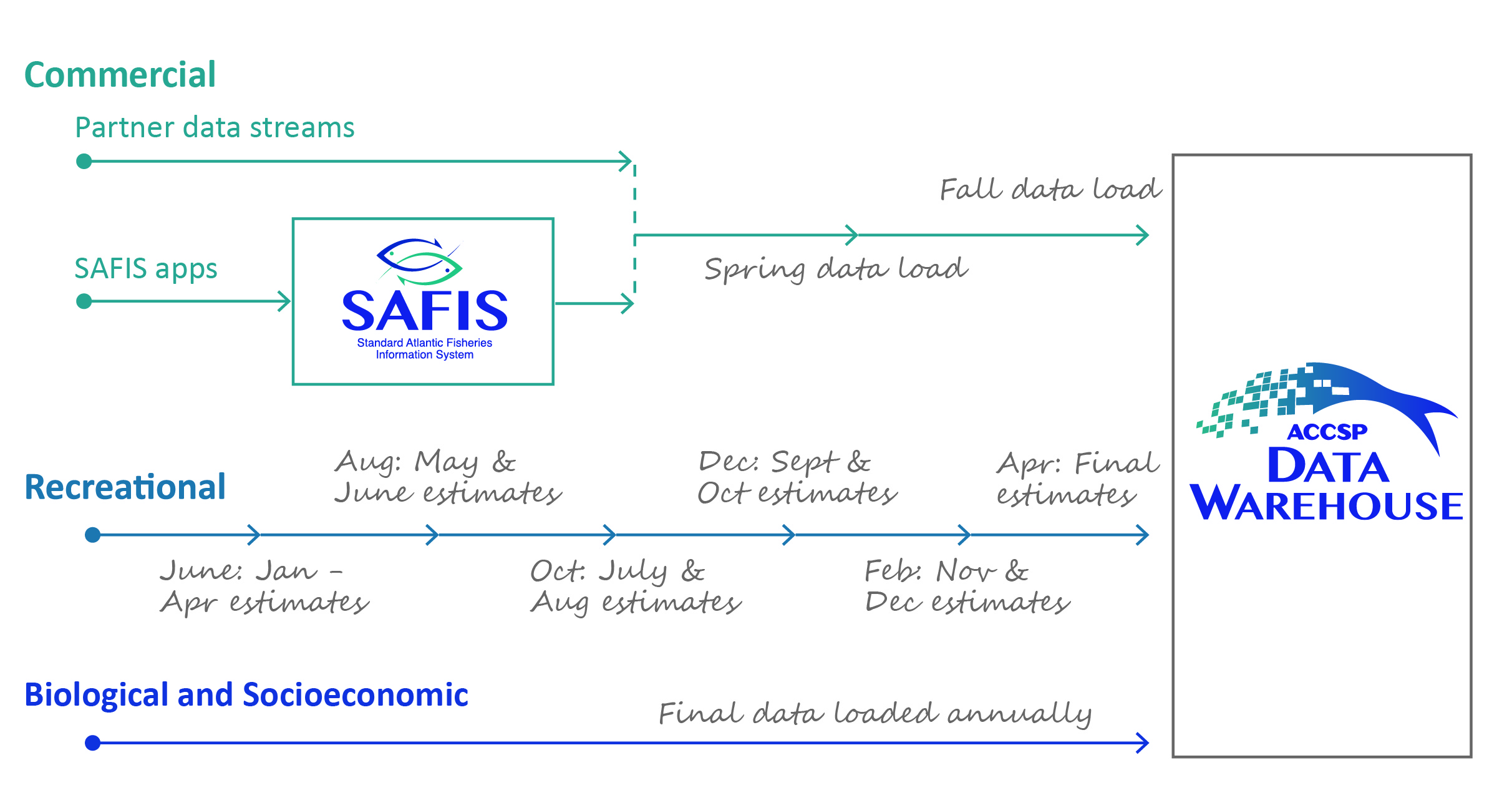About the Data Warehouse
The Data Warehouse is an online database populated with Atlantic coast fishery-dependent data supplied by the ACCSP's 23 program partners. The Warehouse harmonizes all of the data received into one set of codes for variables such as species, gear, and fishing area, making it possible to combine datasets from different sources for larger scale analyses.

Types of Data Available

Commercial
Commercial landings data represent the best compilation of state and federal landings submitted by both dealers and fishermen. Commercial Catch and Effort (trip reports) are fisherman reports, or logbooks that typically have good effort data (area/gear) but in most cases do not represent 100% of the fishing activity (pounds landed).

Biological
ACCSP has Biological sampling data for American lobster (1981-2016) and Atlantic herring (2002 - 2016) available via custom data request.

Recreational
ACCSP has recreational catch and effort data starting in 1981 available via the Data Warehouse. The data since 2004 have been updated in conjunction with the new Marine Recreational Information Program estimation methodology released in February 2012. This includes both the public estimates and the advanced queries for bag limit analysis and directed trips.
Which Data Warehouse should I use?
Public Data Warehouse
- No username and password required
- Only non-confidential data available
- Data can be exported or downloaded
- Queries may not be saved
Login Data Warehouse
- Username and password required
- Contains both non-confidential and confidential data--the data presented will depend on the user's level of access
- User must apply for a non-confidential or confidential account
- Queries and workbooks can be saved and reused
Custom Data Request
- If you have a unique question or cannot retrieve the data you desire from the Data Warehouse, you can submit a custom data request.
- The Data Team will work with you to develop a custom dataset that suits your needs. To submit a custom data request, please click below.
Citing the Data Warehouse
ACCSP recommends the following citation format to cite data retrieved from the Data Warehouse:
Atlantic Coastal Cooperative Statistics Program. (Dates of data by year). Nested Menu Title; generated by John Doe; using Data Warehouse [online application], Arlington, VA: Available at https://www.accsp.org; (Login or Public) Data Warehouse; accessed (month, day, year).
Examples:
Atlantic Coastal Cooperative Statistics Program. (2007-2016). Data Warehouse, Confidential, Fishermen Trips, Summary; generated by John Doe; using Data Warehouse [online application], Arlington, VA: Available at https://www.accsp.org; Login Data Warehouse; accessed (June, 28, 2017).
Atlantic Coastal Cooperative Statistics Program. (2017). SAFIS, SAFIS Landings, Summary; generated by John Doe; using Data Warehouse [online application], Arlington, VA: Available at https://www.accsp.org; Login Data Warehouse; accessed (May, 16, 2017).

